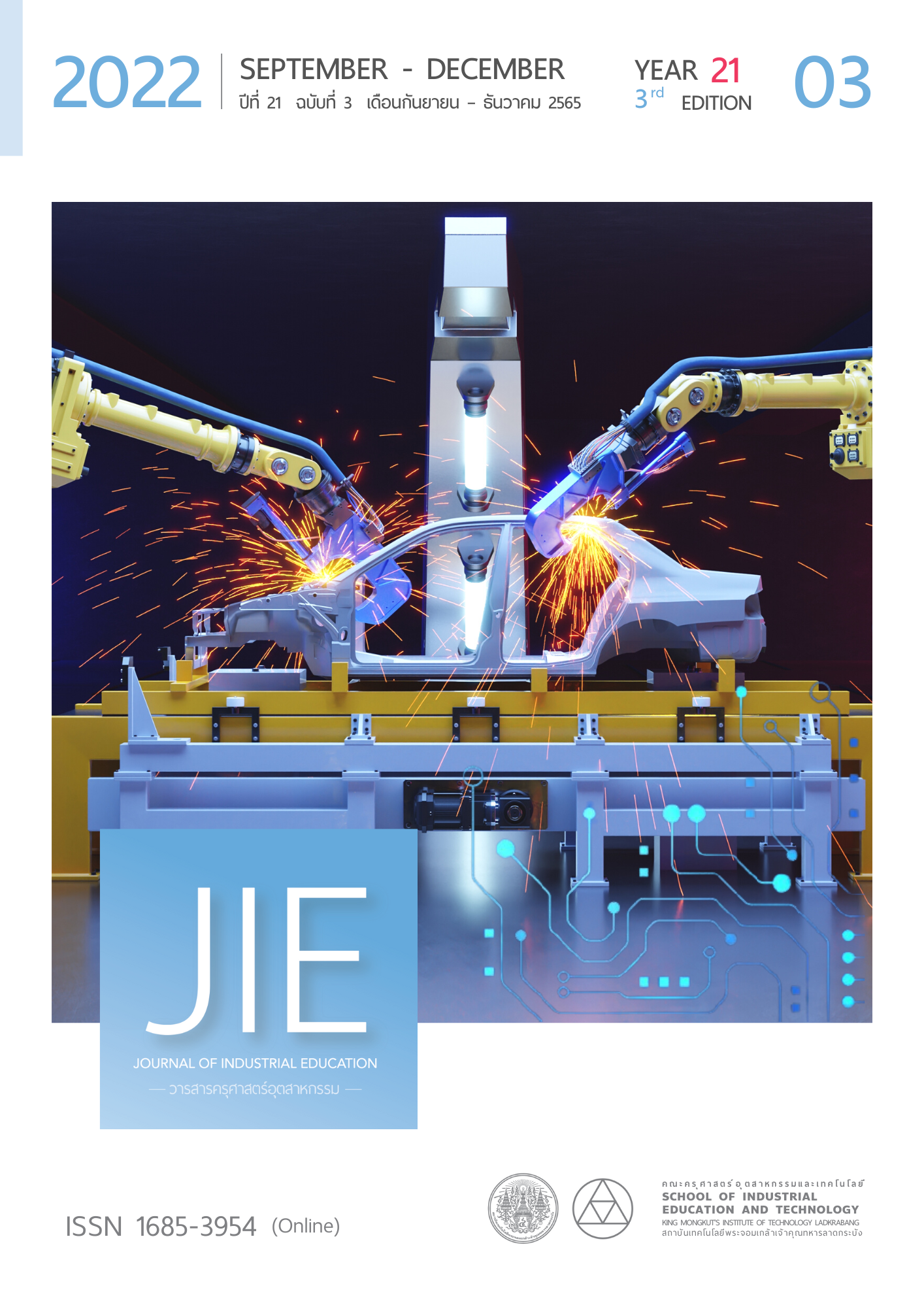ELECTRONIC FLASHCARD KIT USING RFID TECHNOLOGY FOR ALTERNATE WORDS WRITING OF ADHD CHILDREN PROBLEM SOLVING
Keywords:
Flashcards, ADHD, RFID, Alternate words writing problemAbstract
The researchers had developed electronic flashcards with RFID technology set to solve the problem of alternate words writing for ADHD using the teaching technique “Number Follow” and evaluated the quality of the electronic flashcards with RFID technology set to solve the problem of alternate words writing for ADHD using the teaching technique “Number Follow.” The populations were students with ADHD studying in grades 1-6 from 11 educational institutions in semester 2/2021. The 90 samples were selected using the abbreviated Kussi screening form and a specific method (Purposive sampling) with a co-researcher as the primary screener. The research tools were 1) electronic flashcards with RFID technology set to solve the problem of alternate words writing for ADHD using the teaching technique “Number Follow” and 2) manuals in version 4.0 which approved by the Ethics committee on human research. The basic statistics used in the research were percentage, mean (), and standard deviation (S.D). The results showed that 1) Electronic flashcards with RFID technology set to solve the problem of alternate words writing for ADHD using the teaching technique “Number Follow” which consisted of a user manual, a vocabulary list box, Character cards made of RFID cards, an electronic word reader, cover plate all six display screens, and a DC power supply. It was able to teach 46 words; each word had no more than six positions and no more than three syllables. 2) Observation of ADHD student's learning behavior in the sample group after use was significantly higher than before at the .05 level.
References
Klangsorn, S. (2014). The effects of positive reinforcement on disruptive behavior in class of ADHD children [Master’s thesis]. Khon Kaen University. (in Thai)
Noosong, N., Promkuntha, P., & Papor, P. (2019). The developing in basic word reading achievement of prathomsuksa 2 students taught by vocabulary cards and picture cards. Panya Journal of MBU LANNA, 26(2), 1-10. (in Thai)
Pannim, P. (2006). Effects using different types of positive reinforcement in game-based learning via upon mathematics achievement of attention deficit hyperactivity disorder second grade students [Master’s thesis]. Chulalongkorn University. (in Thai)
Pospak. (2019). RFID utility. Retrieved 11 March 2019, from https://www.pospak.com/th/what-is-rfid-blog
Seegaew, N., & Wongsuta, J. (2020). Development of Chinese consonant pronunciation by playing cards game for Grade 5th students of municipal school 2 Watthungsuan Kampheangpet Province. Aksara Pibul Journal, 1(1), 27-38. (in Thai)
Sirithongthaworn, S., Itsarapong, P., Kanjanarat, P., Sonsingh, W., Kamduang, N., Pila, S., & Pattanakitkosol, P. (2017). Classroom management and teaching technique for ADHD children manual. Ministry of Public Health. (in Thai)
Utairatanakit, D., Pornnoppadol, C., Rohitsuk, W., Yasinthorn, N., Andrade, S. W., Saengsawang, T., & Locharoenratana, W. (2006). KUS-SI rating scales: ADHD/LD/Autism (PDDs): KUS-SI user manual. http://www.nya.ac.th/KUS-SI.pdf (in Thai)
Downloads
Published
How to Cite
Issue
Section
License
Copyright (c) 2022 Journal of Industrial Education

This work is licensed under a Creative Commons Attribution-NonCommercial-NoDerivatives 4.0 International License.
"The opinions and contents including the words in papers are responsibility by the authors."
"ข้อคิดเห็น เนื้อหา รวมทั้งการใช้ภาษาในบทความถือเป็นความรับผิดชอบของผู้เขียน"



